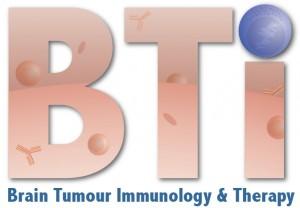Immunotherapy
Brain Tumor Immunology & Therapy Group

Main content
The importance of the immune system in surveillance and control of tumour development and progression is undisputed. Indeed, novel immunotherapies now show unprecedented success for treatment of selected cancer types. However, our understanding of the complex interactions between the tumour and distinct cells of the immune system and how this impacts immunotolerance and tumour’s escape from immune surveillance in some cancers remains elementary. Glioblastoma (GBM) is a highly heterogeneous cancer both genetically and histologically, a feature which poses formidable therapeutic challenges. Hence immunotherapy with ex vivo sensitized, autologous T cells and dendritic cell vaccines has so far demonstrated limited efficacy, perhaps due to limitations of isolating and expanding antigen specific T cells from immune-compromised patients, and lack of pivotal antigens that are expressed on a majority of GBM cells. Brain cancer is also unique in terms of its interactions with the immune system due to the presence of the blood brain barrier that not only prevents the entry of pathogens and toxic substances via the blood, but also limits the access of immune cells into the brain. On the other hand, several examples of the immune responses occurring within the brain have been demonstrated, indicating that the brain tumour is not fully protected from immune surveillance. Thus, detailed studies of the interactions between the brain tumour and the immune system are required to design appropriate immunotherapy strategies that are tailored to these patients.
Natural killer (NK) cells of the innate immune system represent the first line of defence from viremia, malignancy and do not require antigen specificity or co-stimulation and may be better suited for immunotherapy strategies in the brain. As greater than 90% of GBMs express cytomegalovirus proteins, my group´s (WWW.targetNG2.com) focus is to elucidate mechanisms by which NK cells interact with GBM cells in vitro and in functional studies in vivo using primary cultures from patients and healthy donors. We study the immune contexture of GBM patients using multicolour flow cytometry and immunogenetic analyses with emphasis on elucidating the mechanisms of cytotoxic potency, immunological escape and to develop effective NK cell based immunotherapy for clinical translation.
Please visit our home page at www.targetNG2.com for more information.
